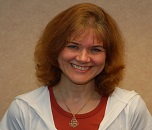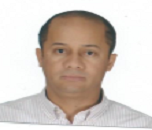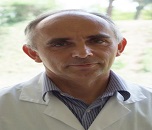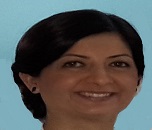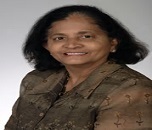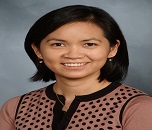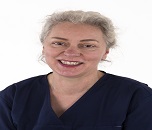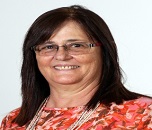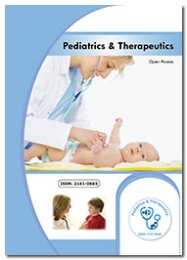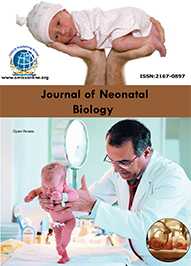Theme: Current trends of neonatologists to create a better health to the new-born
Neonatology 2016
OMICS International is overwhelmed to announce the commencement of its conference, “9th International Conference on Neonatology and Perinatology” which will be held during November 28-30, 2016 at Valencia, Spain. We cordially welcome all the eminent researchers, students and delegates to take part in this upcoming neonatology congress to witness invaluable scientific discussions and contribute to the future innovations in the field of Neonatology.
Neonatology-2016 conference will focus on the latest and exciting innovations in all areas of Neonatology research which offers a unique opportunity for investigators across the globe to meet, network, and perceive new scientific innovations. This year’s annual congress highlights the theme, “Current trends of neonatologists to create a better health to the new-born” which reflects the ground-breaking progress in neonatology research. The three days conference includes neonatal care workshops, symposiums and special keynote sessions conducted by eminent and renowned speakers who excel in the field of neonatology which include the topics neonatal nutrition, birth complications, neonatal infections, neonatal surgery, ethical issues and neonatology in future, advances in fetal evaluation and testing. This global Neonatology Conference also encourages the active participation of young students, upcoming researchers and budding scientists as we are hosting Poster Award Competition and Young research Forum at the conference venue.
Why to attend?
With members from around the world focused on learning about Neonatology and its advances in making a better health; this is your best opportunity to reach the largest assemblage of participants from the Neonatology community. Conduct presentations, distribute information, meet with current and potential scientists, make a splash with new drug developments, new treatment techniques and receive name recognition at this 3-day event. World-renowned speakers, the most recent techniques, developments, and the newest updates in Neonatology are hallmarks of this conference.
Target Audience
- Neonatal specialists
- Neonatal nurse practitioners
- Neonatal staff nurses
- Neonatal respiratory therapists
- Neonatal physical therapists
- Neonatal nutritionists
- Neonatal researchers
OMICS International Conferences invites all the participants from all over the world to attend '9th International Conference on Neonatology and Perinatology' during November 28-30, 2016 in Valencia, Spain which includes prompt keynote presentations, Oral talks, Poster presentations and Exhibitions.
Neonatology 2016 is a global platform to discuss and learn about Neonates and their health, Neonatal Intensive Care, Birth Complications, Neonatal Nutrition, Neonatal Infections, Neonatal Surgery and Ethical Issues and Neonatology in Future.
Track-1: Neonatology
Neonatology is a medical specialty which includes taking care of the new born babies. It is important that the premature babies are needed to be taken in an intensive care unit. This is not because they are really sick but that as their organs are not fully developed it can lead to host problems that require expert interventions. The doctors involved in this treatment are called Neonatologists.
Related Neonatology Conferences | Pediatrics Conferences |
Pediatrics Conferences September 14-16, 2016 Amsterdam, The Netherlands; Pediatric Surgery Conferences September 14-16, 2016 Amsterdam, Netherlands; Pediatric Dermatology Conferences October 10-11, 2016 Manchester, UK; Neonatology Conferences November 14-16, 2016 Valencia, Spain; Neonatal Conferences November 14-16, 2016 Valencia, Spain; Pediatric Neurology Conference November 14-16, 2016 Valencia, Spain; The 2nd International Neonatology Association Conference July 15-17 2016, Austria; 43rd Annual Meeting of the Society for Neonatology and Pediatric Intensive Care June 08-10 2017, Germany; NEO: The Conference for Neonatology February 25-28 2016, USA; Council of International Neonatal Nurses Conference August 14 - 17 2016, Canada.
Track-2: Birth Complications
Premature babies are the ones who are born before the 37th week of gestation. Premature babies experience many complications which can be short-term or long-term complication. The earlier the baby is born the many are the risk of complications. These complications can be treated in the neonatal intensive care unit (NICU). Some of the major premature complications include immature lungs, respiratory distress syndrome, bronchopulmonary dysplasia.
Related Neonatology Conferences | Pediatrics Conferences |
Pediatrics Conferences September 14-16, 2016 Amsterdam, The Netherlands; Pediatric Surgery Conferences September 14-16, 2016 Amsterdam, Netherlands; Pediatric Dermatology Conferences October 10-11, 2016 Manchester, UK; Neonatology Conferences November 14-16, 2016 Valencia, Spain; Neonatal Conferences November 14-16, 2016 Valencia, Spain; Pediatric Neurology Conference November 14-16, 2016 Valencia, Spain;The 2nd International Neonatology Association Conference July 15-17 2016, Austria; 43rd Annual Meeting of the Society for Neonatology and Pediatric Intensive Care June 08-10 2017, Germany; NEO: The Conference for Neonatology February 25-28 2016, USA; Council of International Neonatal Nurses Conference August 14 - 17 2016, Canada.
Track-3: Neonatal Nutrition
Nutrition plays an important role especially in the first couple of weeks after the child birth. Breast Feeding has important ingredients that build the baby’s immune system. Neonatal nutrition is important for the growth and development of the newborn babies. In general, babies should be atleast 4 pounds before they are ready to come out of the incubator.
Related Neonatology Conferences | Pediatrics Conferences |
Pediatrics Conferences September 14-16, 2016 Amsterdam, The Netherlands; Pediatric Surgery Conferences September 14-16, 2016 Amsterdam, Netherlands; Pediatric Dermatology Conferences October 10-11, 2016 Manchester, UK; Neonatology Conferences November 14-16, 2016 Valencia, Spain; Neonatal Conferences November 14-16, 2016 Valencia, Spain; Pediatric Neurology Conference November 14-16, 2016 Valencia, Spain; The 2nd International Neonatology Association Conference July 15-17 2016, Austria; 43rd Annual Meeting of the Society for Neonatology and Pediatric Intensive Care June 08-10 2017, Germany; NEO: The Conference for Neonatology February 25-28 2016, USA; Council of International Neonatal Nurses Conference August 14 - 17 2016, Canada.
Track-4: Neonatal Infections
Neonatal infection is the study of various infections that cause illness to the new born babies. Neonatal sepsis is the most commonly seen infections in the new born babies. Neonates who are ill, especially those with risk factors should be considered. Some of the neonatal infections are congenital rubella, syphilis, toxoplasmosis growth restriction, deafness, microcephaly, anomalies, hepatosplenomegaly, or neurologic abnormalities.
Related Neonatology Conferences | Pediatrics Conferences |
Pediatrics Conferences September 14-16, 2016 Amsterdam, The Netherlands; Pediatric Surgery Conferences September 14-16, 2016 Amsterdam, Netherlands; Pediatric Dermatology Conferences October 10-11, 2016 Manchester, UK; Neonatology Conferences November 14-16, 2016 Valencia, Spain; Neonatal Conferences November 14-16, 2016 Valencia, Spain; Pediatric Neurology Conference November 14-16, 2016 Valencia, Spain; The 2nd International Neonatology Association Conference July 15-17 2016, Austria; 43rd Annual Meeting of the Society for Neonatology and Pediatric Intensive Care June 08-10 2017, Germany; NEO: The Conference for Neonatology February 25-28 2016, USA; Council of International Neonatal Nurses Conference August 14 - 17 2016, Canada.
Track-5: Neonatal Surgery
Neonatal surgery is the sub-specialty of pediatric surgery that includes the surgical care of newborn infants especially new born who are ill. Neonatal surgeons are the ones who perform surgeries including chest, abdominal and urological defects. Neonatal surgery includes the treatment of infants in the first 28 days of birth
Related Neonatology Conferences | Pediatrics Conferences |
Pediatrics Conferences September 14-16, 2016 Amsterdam, The Netherlands; Pediatric Surgery Conferences September 14-16, 2016 Amsterdam, Netherlands; Pediatric Dermatology Conferences October 10-11, 2016 Manchester, UK; Neonatology Conferences November 14-16, 2016 Valencia, Spain; Neonatal Conferences November 14-16, 2016 Valencia, Spain; Pediatric Neurology Conference November 14-16, 2016 Valencia, Spain; The 2nd International Neonatology Association Conference July 15-17 2016, Austria; 43rd Annual Meeting of the Society for Neonatology and Pediatric Intensive Care June 08-10 2017, Germany; NEO: The Conference for Neonatology February 25-28 2016, USA; Council of International Neonatal Nurses Conference August 14 - 17 2016, Canada.
Track-6: Ethical Issues and Neonatology in Future
As neonatal medicine has become an important research, it is important to discuss the ethical issues involved for the betterment of a new born baby’s health. Learning more about the ethical, legal and social issues on giving intensive care to babies born before 26 weeks helps to improve the neonatal medicine and care.
Related Neonatology Conferences | Pediatrics Conferences |
Pediatrics Conferences September 14-16, 2016 Amsterdam, The Netherlands; Pediatric Surgery Conferences September 14-16, 2016 Amsterdam, Netherlands; Pediatric Dermatology Conferences October 10-11, 2016 Manchester, UK; Neonatology Conferences November 14-16, 2016 Valencia, Spain; Neonatal Conferences November 14-16, 2016 Valencia, Spain; Pediatric Neurology Conference November 14-16, 2016 Valencia, Spain; The 2nd International Neonatology Association Conference July 15-17 2016, Austria; 43rd Annual Meeting of the Society for Neonatology and Pediatric Intensive Care June 08-10 2017, Germany; NEO: The Conference for Neonatology February 25-28 2016, USA; Council of International Neonatal Nurses Conference August 14 - 17 2016, Canada.
Track 7: Neonatal Eye Problem
New-born babies are able to follow a light with their eyes and turn toward lights. They are very near-sighted at first, and they can focus best on things that are within 25 cm (10 inches) of their faces. Their vision improves over the first three months. In time, his ability to focus will improve and he will see as well as the rest of us.
There are a few things that you might be concerned about, with regard to your new-born baby’s eyes: uncoordinated eyes, crossed eyes, and teary eyes.
Eye problems in babies may be congenital (usually genetic or through intrauterine insult) or acquired after birth. Early detection and prompt treatment are essential, in order to avoid lifelong visual impairment. The eyes should be examined at the first neonatal check, when babies should be examined for structural abnormalities such as cataract, corneal opacity, ptosis and retinoblastoma, again at the six-week check, and at every well-child screening visit. Any child with an ocular abnormality should be referred to an ophthalmologist specialising in paediatric patients.
Failure to detect and appropriately manage disorders of vision in early childhood may have long-term consequences, not only for the development of normal vision but also for self-confidence and the realisation of potential.
Related Neonatology Conferences | Pediatrics Conferences |
Pediatrics Conferences September 14-16, 2016 Amsterdam, The Netherlands; Pediatric Surgery Conferences September 14-16, 2016 Amsterdam, Netherlands; Pediatric Dermatology Conferences October 10-11, 2016 Manchester, UK; Neonatology Conferences November 14-16, 2016 Valencia, Spain; Neonatal Conferences November 14-16, 2016 Valencia, Spain; Pediatric Neurology Conference November 14-16, 2016 Valencia, Spain; The 2nd International Neonatology Association Conference July 15-17 2016, Austria; 43rd Annual Meeting of the Society for Neonatology and Pediatric Intensive Care June 08-10 2017, Germany; NEO: The Conference for Neonatology February 25-28 2016, USA; Council of International Neonatal Nurses Conference August 14 - 17 2016, Canada.
Track 8: Neonatal syndromes
Neonatal Abstinence Syndrome. Fetal and neonatal addiction and withdrawal as a result of the mother's dependence on drugs during pregnancy. Withdrawal or abstinence symptoms develop shortly after birth. Symptoms exhibited are loud, high-pitched crying, sweating, yawning and gastrointestinal disturbances.
Neonatal seizures or neonatal convulsions are epileptic fits occurring from birth to the end of the neonatal period. The neonatal period is the most vulnerable of all periods of life for developing seizures, particularly in the first 1–2 days to the first week from birth. They may be short-lived events lasting for a few days only. However, they often signify serious malfunction of or damage to the immature brain and constitute a neurological emergency demanding urgent diagnosis and management.
Related Neonatology Conferences | Pediatrics Conferences |
Pediatrics Conferences September 14-16, 2016 Amsterdam, The Netherlands; Pediatric Surgery Conferences September 14-16, 2016 Amsterdam, Netherlands; Pediatric Dermatology Conferences October 10-11, 2016 Manchester, UK; Neonatology Conferences November 14-16, 2016 Valencia, Spain; Neonatal Conferences November 14-16, 2016 Valencia, Spain; Pediatric Neurology Conference November 14-16, 2016 Valencia, Spain;
Track 9: Neonatal CNS Disorder
The central nervous system of a growing foetus starts with a simple structure called the ‘neural groove’ that folds in to form the ‘neural tube’. This then develops into the spinal cord and brain. By day 28 after conception, the neural tube should be closed and fused. If it doesn’t close, the result is a neural tube defect.
In many cases, these defects can be diagnosed during pregnancy with ultrasound scans and, rarely, with other tests such as amniocentesis (analysing a sample of amniotic fluid).
Neonatal seizures are abnormal electrical discharges in the CNS of neonates and usually manifest as stereotyped muscular activity or autonomic changes. Diagnosis is confirmed by EEG; testing for causes is indicated and treatment depends on the cause.
Seizures occur in up to 1.4% of term infants and 20% of premature infants. Seizures may be related to a serious neonatal problem and require immediate evaluation. Most neonatal seizures are focal, probably because generalization of electrical activity is impeded in neonates by lack of myelination and incomplete formation of dendrites and synapses in the brain.
Related Neonatology Conferences | Pediatrics Conferences |
Pediatrics Conferences September 14-16, 2016 Amsterdam, The Netherlands; Pediatric Surgery Conferences September 14-16, 2016 Amsterdam, Netherlands; Pediatric Dermatology Conferences October 10-11, 2016 Manchester, UK; Neonatology Conferences November 14-16, 2016 Valencia, Spain; Neonatal Conferences November 14-16, 2016 Valencia, Spain; Pediatric Neurology Conference November 14-16, 2016 Valencia, Spain; The 2nd International Neonatology Association Conference July 15-17 2016, Austria; 43rd Annual Meeting of the Society for Neonatology and Pediatric Intensive Care June 08-10 2017, Germany; NEO: The Conference for Neonatology February 25-28 2016, USA; Council of International Neonatal Nurses Conference August 14 - 17 2016, Canada.
Track 10: Neonatal Respiratory Diseases
Respiratory distress in the neonate most commonly presents as one or all of the following physical signs: tachypnea, grunting, nasal flaring, retractions, and cyanosis. A normal respiratory rate in a new-born is between 30 and 60 breaths/min; tachypnea is classified as respiratory rates greater than 60 breaths/min.
Neonatal respiratory distress syndrome (RDS) is a problem often seen in premature babies. The condition makes it hard for the baby to breathe. The disease is mainly caused by a lack of a slippery substance in the lungs called surfactant. This substance helps the lungs fill with air and keeps the air sacs from deflating. Surfactant is present when the lungs are fully developed.
Neonatal RDS can also be due to genetic problems with lung development. Most cases of RDS occur in babies born before 37 to 39 weeks. The more premature the baby is, the higher the chance of RDS after birth. The problem is uncommon in babies born full-term (after 39 weeks)
Related Neonatology Conferences | Pediatrics Conferences |
Pediatrics Conferences September 14-16, 2016 Amsterdam, The Netherlands; Pediatric Surgery Conferences September 14-16, 2016 Amsterdam, Netherlands; Pediatric Dermatology Conferences October 10-11, 2016 Manchester, UK; Neonatology Conferences November 14-16, 2016 Valencia, Spain; Neonatal Conferences November 14-16, 2016 Valencia, Spain; Pediatric Neurology Conference November 14-16, 2016 Valencia, Spain; The 2nd International Neonatology Association Conference July 15-17 2016, Austria; 43rd Annual Meeting of the Society for Neonatology and Pediatric Intensive Care June 08-10 2017, Germany; NEO: The Conference for Neonatology February 25-28 2016, USA; Council of International Neonatal Nurses Conference August 14 - 17 2016, Canada.
Track 11: Neonatal Renal disorder
Acute renal failure (ARF) is a very common problem in the neonatal intensive care unit. The new-born kidney has a very low glomerular filtration rate (GFR) that is maintained by a delicate balance between vasoconstrictor and vasodilatory forces. Although sufficient for growth and development under normal conditions, the low GFR of the new-born kidney limits postnatal renal functional adaptation to endogenous and exogenous stresses. This limited response predisposes the new-born to the development of ARF and is even more pronounced in the low birth weight infant (ie, <2,500 g due to preterm birth or intrauterine growth restriction). Given this predisposition, early identification of ARF in the neonate is essential to preserving renal function.
Related Neonatology Conferences | Pediatrics Conferences |
Pediatrics Conferences September 14-16, 2016 Amsterdam, The Netherlands; Pediatric Surgery Conferences September 14-16, 2016 Amsterdam, Netherlands; Pediatric Dermatology Conferences October 10-11, 2016 Manchester, UK; Neonatology Conferences November 14-16, 2016 Valencia, Spain; Neonatal Conferences November 14-16, 2016 Valencia, Spain; Pediatric Neurology Conference November 14-16, 2016 Valencia, Spain; The 2nd International Neonatology Association Conference July 15-17 2016, Austria; 43rd Annual Meeting of the Society for Neonatology and Pediatric Intensive Care June 08-10 2017, Germany; NEO: The Conference for Neonatology February 25-28 2016, USA; Council of International Neonatal Nurses Conference August 14 - 17 2016, Canada.
Track 12: Neonatal Heart Disorder
Congenital heart disease (CHD) is the most common congenital disorder in new-borns. Critical CHD, defined as requiring surgery or catheter-based intervention in the first year of life, occurs in approximately 25% of those with CHD. Although many new-borns with critical CHD are symptomatic and identified soon after birth, others are not diagnosed until after discharge from the birth hospitalization . In infants with critical cardiac lesions, the risk of morbidity and mortality increases when there is a delay in diagnosis and timely referral to a tertiary center with expertise in treating these patients.
Related Neonatology Conferences | Pediatrics Conferences |
Pediatrics Conferences September 14-16, 2016 Amsterdam, The Netherlands; Pediatric Surgery Conferences September 14-16, 2016 Amsterdam, Netherlands; Pediatric Dermatology Conferences October 10-11, 2016 Manchester, UK; Neonatology Conferences November 14-16, 2016 Valencia, Spain; Neonatal Conferences November 14-16, 2016 Valencia, Spain; Pediatric Neurology Conference November 14-16, 2016 Valencia, Spain; The 2nd International Neonatology Association Conference July 15-17 2016, Austria; 43rd Annual Meeting of the Society for Neonatology and Pediatric Intensive Care June 08-10 2017, Germany; NEO: The Conference for Neonatology February 25-28 2016, USA; Council of International Neonatal Nurses Conference August 14 - 17 2016, Canada.
Track 13: Neonatal Disorders
Obstetricians play a major role to minimise the number of neonatal disorders. Prematurity, respiratory dysfunction, birth trauma, congenital malformations, neonatal infection and haemolytic disorders of the new-born and Some common neonatal disorders include sudden infant death syndrome (SIDS) and neonatal jaundice. SIDS is the leading cause of death among infants who are one month to one year old are some examples of neonatal disorders commonly encountered. A healthy start in life is important to every new-born baby. The first 28 days, called the neonatal period, is especially critical. It is during this time that fundamental health and feeding practices are established.
Related Neonatology Conferences | Pediatrics Conferences |
Pediatrics Conferences September 14-16, 2016 Amsterdam, The Netherlands; Pediatric Surgery Conferences September 14-16, 2016 Amsterdam, Netherlands; Pediatric Dermatology Conferences October 10-11, 2016 Manchester, UK; Neonatology Conferences November 14-16, 2016 Valencia, Spain; Neonatal Conferences November 14-16, 2016 Valencia, Spain; Pediatric Neurology Conference November 14-16, 2016 Valencia, Spain;The 2nd International Neonatology Association Conference July 15-17 2016, Austria; 43rd Annual Meeting of the Society for Neonatology and Pediatric Intensive Care June 08-10 2017, Germany; NEO: The Conference for Neonatology February 25-28 2016, USA; Council of International Neonatal Nurses Conference August 14 - 17 2016, Canada.
Track 14: Neonatal Skin diseases
Neonatal skin is structurally unique. Dermatological diseases in neonates are commonly benign and self limiting, but they may also herald underlying systemic disease and can be life threatening. Transient neonatal pustular melanosis is a benign, idiopathic skin condition characterized by vesicles, superficial pustules, and pigmented macules. The overall incidence is 2.2%, equally divided between sexes, with rates of 0.6% in white and 4.4% in black infants. Skin conditions are seen frequently throughout childhood, from infancy through adolescence. There are many causes, including infection and inflammation. Rashes, birthmarks, and other skin conditions are encountered frequently in infancy. Most new-born rashes are benign and require no treatment. Other conditions, however, require extensive evaluation and close follow-up to ensure the best possible outcomes. New-born skin problems shown clockwise from the top left include infantile haemangioma, transient neonatal pustular melanosis, milia, and nevus sebaceous.
Related Neonatology Conferences | Pediatrics Conferences |
Pediatrics Conferences September 14-16, 2016 Amsterdam, The Netherlands; Pediatric Surgery Conferences September 14-16, 2016 Amsterdam, Netherlands; Pediatric Dermatology Conferences October 10-11, 2016 Manchester, UK; Neonatology Conferences November 14-16, 2016 Valencia, Spain; Neonatal Conferences November 14-16, 2016 Valencia, Spain; Pediatric Neurology Conference November 14-16, 2016 Valencia, Spain; The 2nd International Neonatology Association Conference July 15-17 2016, Austria; 43rd Annual Meeting of the Society for Neonatology and Pediatric Intensive Care June 08-10 2017, Germany; NEO: The Conference for Neonatology February 25-28 2016, USA; Council of International Neonatal Nurses Conference August 14 - 17 2016, Canada.
About the Conference:
Neonatology-2016 welcomes attendees, presenters, and exhibitors from all over the world to Valencia, Spain. We are delighted to invite you all to attend and register for the “7th International Conference on Neonatology and Perinatology (Neonatology-2016)” which is going to be held during November 28-30, 2016 in Valencia, Spain.
The organizing committee is gearing up for an exciting and informative conference program including plenary lectures, symposia, workshops on a variety of topics, poster presentations and various programs for participants from all over the world. We invite you to join us at the Neonatology-2016, where you will be sure to have a meaningful experience with scholars from around the world. All members of the Neonatology-2016 organizing committee look forward to meeting you in Valencia, Spain.
For more details please visit- http://neonatology.conferenceseries.com/
Importance & Scope:
Global burden of neonate mortality is increasing drastically every year. WHO estimates that 8.8 million deaths occur annually among infant and children < 5 years of age. 3.8 million in the first 30 days of life 36% of neonatal deaths due to infectious diseases. Nearly 9 million children under five die every year. Reflecting this imperative, we believe that professionally-oriented education in to cure neonatal diseases is essential in the training of clinicians and clinical academics who will provide the future leadership in this key area for global health. Neonatology-2016 aims to bring together leading academic scientists, researchers and research scholars to exchange and share their experiences and research results about all aspects of Neonatology. It also provides the chance for researchers, practitioners and educators to present and discuss the most recent innovations, trends, and concerns, practical challenges encountered and the solutions adopted in the fields of Neonatology and Perinatology.
Neonatology-2016 is an international platform for presenting research about diagnosis, prevention and management of neonatal diseases, exchanging ideas about it and thus, contributes to the dissemination of knowledge in neonatology for the benefit of both the academia and business. This event brings together neonatologists, neonatal nutritionists and all the eminent researchers and experts in the field of Neonatal and Perinatal medicine to explore the advancements in the Neonatology. We bring together industrial executives, Neonatology Pharma and Health care sectors making the conference a perfect platform to network, share views and knowledge through interactive discussions.

Why Valencia?
It is being acknowledged that the leading cause for neonates in Valencia was birth defects; prematurity/low birth weight; sudden infant death syndrome; maternal complications of pregnancy and respiratory distress syndrome.
In Valencia during 2010-2014 (average) neonate mortality rate of 5.4 per 1,000 live births. In Valencia in 2002, the rate of neonatal mortality was 8.0 per 1,000 live births which have reached to 2.40 per 1,000 infant births by the year 2014. Reflecting this imperative Neonatology-2016 aims to educate neonatologists and achieve the goal of reducing neonatal mortality rate.

Member Associated with Neonatology Research:
Neonatology research includes a number of specialties like neonatal specialists, Neonatal specialists, Neonatal nurse practitioners, Neonatal staff nurses, Neonatal respiratory therapists, Neonatal physical therapists, Neonatal nutritionists, Neonatal researchers and many more. Among the average number of practicing pediatricians in Spain i.e 1.0 per 10,000 populations, 0.3 pediatricians are specialized neonatologists.

Hospitals Associated with Neonatology Research

Societies Associated with Neonatal and Perinatal Research
Different neonatal and perinatal associations in Valencia, Spain and across the globe are conducting research studies to improve the neonatal health and decrease the neonatal mortality rate.
Universities Associated with Neonatal and Perinatal Research
In Valencia, there are approximately about 30 Universities which include neonatal and perinatal research. In Spain alone there are 100 Universities and globally there are about 1350 universities which include Neonatal and perinatal research. The top best colleges are listed below:

Market value on Neonatal and Perinatal Research:
It is being acknowledged that the neonatal mortality rate is being increased due to various infectious diseases. According to the records in Spain the market value on neonatal and perinatal research is $194,959 USD

Market Growth of Neonatal and Perinatal Research in the last and upcoming years
Reports state that the global fetal and neonatal care market divided into global NICU equipment market, global labor and delivery equipment market, and global other labor & delivery equipment & NICU equipment market over the forecasted period (2011-2016). The global NICU equipment market was worth $1.4 billion in 2011; growing at a steady pace to reach $1.9 billion in 2016. The global labor and delivery equipment market that primarily consists of fetal monitors is valued at $612 million in 2011; growing to reach $797 million in 2016. The global other labor & delivery equipment & NICU equipment market that mainly consists of respiratory assistance devices, monitoring equipment, and delivery systems is worth over $2.2 billion in 2011; growing to reach $3.2 billion in 2016.
Products manufactured by the industry related Neonatal and Perinatal Research and it’s market Value.
Conference Highlights
- Neonatology
- Birth Complications
- Neonatal Nutrition
- Neonatal Infections
- Neonatal Surgery
- Ethical Issues and Neonatology in Future
- Neonatal Eye problems
- Neonatal Syndromes
- Neonatal CNS disorder
- Neonatal Respiratory Diseases
- Neonatal Renal disorder
- Neonatal Heart Disease
- Neonatal disorder
- Neonatal Skin diseases
To share your views and research, please click here to register for the Conference.
To Collaborate Scientific Professionals around the World
| Conference Date | November 28-30, 2016 | ||
| Sponsors & Exhibitors |
|
||
| Speaker Opportunity Closed | Day 1 | Day 2 | Day 3 |
| Poster Opportunity Closed | Click Here to View | ||
Useful Links
Special Issues
All accepted abstracts will be published in respective Our International Journals.
Abstracts will be provided with Digital Object Identifier by







